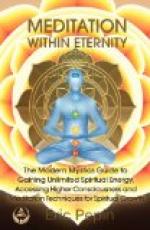To such a mind, the admonition to “never mind about those questions; don’t think about them,” fell upon dull ears. He could no more cease thinking upon the mysteries of life and death than he could cease respiration. Nor could he blindly trust. He must know. Nothing is more unescapable than the soul’s urge toward freedom—and freedom can be won only by liberation from the bondage of illusion.
Tolstoi’s friends and biographers agree that along about his forty-fifth year, a great moral and religious change took place. The whole trend of his thoughts turned from the mortal consciousness to that inner self whence issues the higher qualities of mankind.
From a man who, although he was a great writer and a Russian nobleman, was yet a man like others of his kind, influenced by traditionary ideas of class and outward appearance; a man of conventional habits and ideas; Tolstoi emerged a free soul. He shook off the illusion of historical life and culture, and stood upon free, moral ground, estimating himself and his fellows by means of an insight which ignores the world’s conventions and despises the world’s standards of success. In short, Tolstoi had received Illumination and henceforth should he reckoned among those of the new birth.
In his own words, written in 1879, this change is described:
“Five years ago a change took place in me. I began to experience at first times of mental vacuity, of cessation of life, as if I did not know why I was to live or what I was to do. These suspensions of life always found expression in the same problem, ‘Why am I here?’ and then ‘What next?’ I had lived and lived and gone on and on till I had drawn near a precipice; I saw clearly that before me there lay nothing but destruction. With all my might I endeavored to escape from this life. And suddenly I, a happy man, began to hide my bootlaces that I might not hang myself between the wardrobes in my room when undressing at night; and ceased to take a gun with me out shooting, so as to avoid temptation by these two means of freeing myself from this life. * * *
“I lived in this way (that is to say, in communion with the people) for two years; and a change took place in me. What befell me was that the life of our class—the wealthy and cultured—not only became repulsive to me, but lost all significance. All our actions, our judgments, science, and art itself, appeared to me in a new light. I realized that it was all self-indulgence, and that it was useless to look for any meaning in it. I hated myself and acknowledged the truth. Now it had all become clear to me.”
From this time on, Tolstoi’s life was that of one who had entered into cosmic consciousness, as we note the effects in others. Desire for solitude a taste for the simple, natural things of life, possessed him. The primitive peasants and their coarse but wholesome food appealed to him. It was not a penance that Tolstoi imposed upon himself, that caused him to abandon the life of a country gentleman for that of a hut in the woods. The penance would come to such a one from enforced living in the glare of the world’s artificialities. Cosmic consciousness bestows above all things a taste for simplicity; it restores the normal condition of mankind, the intimacy with nature and the feeling of kinship with nature-children.




